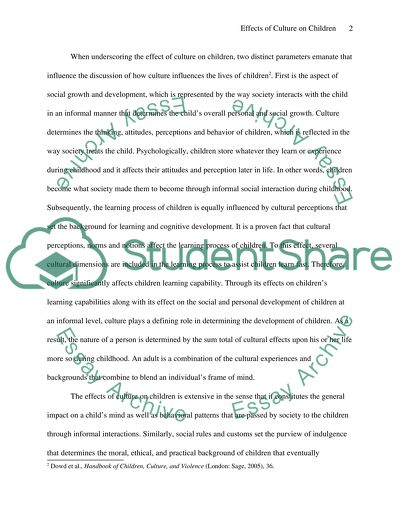Cite this document
(“Effects of Culture on Children Research Paper Example | Topics and Well Written Essays - 5000 words”, n.d.)
Retrieved from https://studentshare.org/sociology/1400392-effects-of-culture-on-children
Retrieved from https://studentshare.org/sociology/1400392-effects-of-culture-on-children
(Effects of Culture on Children Research Paper Example | Topics and Well Written Essays - 5000 Words)
https://studentshare.org/sociology/1400392-effects-of-culture-on-children.
https://studentshare.org/sociology/1400392-effects-of-culture-on-children.
“Effects of Culture on Children Research Paper Example | Topics and Well Written Essays - 5000 Words”, n.d. https://studentshare.org/sociology/1400392-effects-of-culture-on-children.


